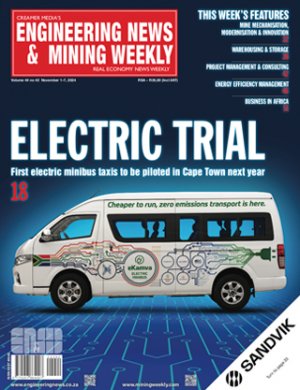From an economic perspective, the most important signal provided by President Cyril Ramaphosa in his State of the Nation Address was that the reform agenda remains in place, and that it will be underpinned by fiscal restraint and ongoing efforts to rebuild credible governance and institutional capacity in the public sector.
True, the address failed to inspire confidence that government really has a plan to root out the organised criminal networks that have progressively penetrated key areas of the economy, from construction and electricity to mining and transport. But it was stronger in outlining how the two most visible constraints to growth and investment – electricity and freight logistics – are being addressed.
Here, the reform agendas in both sectors were held up not only as something to be extolled, but as something to be intensified. In both instances, there is a grudging acceptance that the current market structures, as well as their over-reliance on failing State-owned enterprises, are no longer fit for purpose, and will never again deliver competitive services even if there were unlimited fiscal resources to back their recoveries.
Achieving an outcome that is growth and investment enhancing will require the capital, capacity and ingenuity of the private sector.
What is equally crucial, however, is for this opening up to be accompanied by clear legislative and regulatory guardrails that ensure that these private firms are not able to exploit any residual monopoly hangovers.
In the electricity sector, such safeguards should arise because of the Electricity Regulation Amendment legislation that is currently advancing (at a remarkable pace, one might add) through the Parliamentary process.
The Bill envisages a more competitive electricity landscape and, thus, begins to cater for the downside risks associated with a transition from a vertically integrated monopoly structure to a more disaggregated arrangement. It also recognises the natural monopoly that will persist in transmission, which will mean that the emerging National Transmission Company South Africa will, and should, remain the dominant market participant, even if the “innovative investment models” mooted by the President are introduced to help fast-track the construction of powerlines and substations.
Similar legislative restraints will be required in rail, as the infrastructure and operational aspects of Transnet Freight Rail are separated to allow for private train operations.
The question, then, is whether this reform agenda could be dislodged after the elections, given that the African National Congress (ANC) is likely to dip below 50% for the first time in the democratic era. Under most scenarios, the reforms will remain intact, partly because of the momentum behind them and partly because there are simply no public resources to fund an alternative.
Sand could well be thrown in the gears under a scenario where the ANC enters a coalition with the Economic Freedom Fighters. Even then, however, it is likely to be a temporary disruption, given than no governing coalition will surely be comfortable presiding over yet further backsliding in the two crucial areas of power and logistics.
Edited by: Terence Creamer
Creamer Media Editor
EMAIL THIS ARTICLE SAVE THIS ARTICLE
ARTICLE ENQUIRY
To subscribe email subscriptions@creamermedia.co.za or click here
To advertise email advertising@creamermedia.co.za or click here













